Bulgarian Beverages: Basic Overview
Common Ingredients
Common Preparing Methods
Key Taste
Drinking Etiquette
Culinary Festivals
Influence and Fusion
Classifications of Bulgarian Beverages
-
Alcoholic Beverages
Bulgarian alcoholic beverages are deeply rooted in the country’s cultural traditions and agricultural practices.
They showcase a wide range of flavors derived from various locally sourced fruits, grains, and herbs.
These drinks often play a significant role in social gatherings, celebrations, and culinary customs.
-
Non-alcoholic Beverages
Non-alcoholic beverages in Bulgarian cuisine are characterized by their rich variety and cultural significance.
Ranging from fermented grain-based drinks to herbal teas and fruit juices, these beverages often incorporate natural ingredients found in Bulgaria’s diverse landscapes.
Bulgarian beverages are drinks commonly enjoyed in Bulgaria, a country situated in Southeast Europe, known for its rich history in grape growing and wine production that dates back to the times of the Thracians.
The country’s diverse climatic conditions and geographical features contribute to a wide variety of local beverages, both alcoholic and non-alcoholic.
Evidence of winemaking in Bulgaria has been found to exist since 4000 B.C., making wine, alongside beer and grape rakia, some of the most favored alcoholic drinks in the nation.
Alcoholic beverages in Bulgaria include a range of wines produced in its distinct viticultural regions, each with its unique climate and grape varieties. Rakia, a fruit brandy popular in the Balkans, is another cornerstone of Bulgarian alcoholic beverages.
Non-alcoholic options are varied, with ayran being the most popular, especially during the summer.
In addition to the famous drinks, you can investigate the customs of Bulgarian drinking culture, the worldwide popularity of these refreshments, and the ideal combinations of foods and drinks.
Let’s begin your exploration now!
18 Popular Bulgarian Beverages
Discover Bulgaria’s top 18 beverages, selected for their popularity. This guide features advanced filters to customize your search by popularity, ingredients, flavor profiles, and preparation methods.
Find everything from traditional drinks to national favorites, street drinks, and innovative fusion beverages, all in one concise guide.
Rakia
- Alcoholic
- National
- Traditional
Rakia is a traditional alcoholic beverage that is a hallmark of Bulgarian cuisine and other Balkan countries. This distilled spirit is made primarily from fermented fruits, including grapes, plums, apricots, pears, apples, cherries, and figs.
Rakia is deeply embedded in Bulgarian culture and is often consumed at social gatherings, making it a national drink. There are several famous variations of rakia, such as grape rakia, plum rakia (slivovitz), and apricot rakia, each with its unique flavor profile.
It is also traditionally associated with various celebrations such as Christmas and New Year and family events, serving not only as a drink but also as a symbol of hospitality and warmth.
Boza
- Non-Alcoholic
- Street Beverages
- Traditional
Boza, or bosa, is a traditional fermented beverage of Bulgarian and other Balkan cuisines. It is made from the fermentation of various grains such as maize, wheat, and millet, creating a thick, mildly alcoholic (around 1% alcohol content), and slightly acidic sweet drink.
Boza is known for its unique taste and thick consistency. It has a long history, with its origins tracing back to Central Asia, and has been a popular drink in the region for centuries.
The beverage is enjoyed in various parts of the Balkans, Turkey, and beyond, with each region offering its own variation of the drink.
Ayran
- Non-Alcoholic
- Street Beverages
- Traditional
Ayran is a traditional Bulgarian beverage, deeply rooted in the country’s culinary heritage. It is a refreshing, yogurt-based drink, known for its cooling effect and is often consumed to complement spicy dishes or as a thirst quencher during the hot summer months.
Ayran is made by diluting yogurt with water and adding a pinch of salt, resulting in a tangy, creamy drink that is both nourishing and hydrating.
While ayran is a staple across various Balkan and Middle Eastern countries, each region has its own variations in preparation, but the basic ingredients remain largely the same.
In Bulgaria, it is commonly consumed daily and a popular meal accompaniment, especially during lunchtime.
Mastika
- Alcoholic
- Traditional
Mastika is a traditional Bulgarian spirit known for its flavor, which is derived from the mastic tree. This alcoholic beverage is often categorized as a liqueur and is enjoyed both as a digestive and a celebratory drink.
Mastika can be served neat, on ice, or mixed in various cocktails. It is particularly famous for its unique taste, which sets it apart from other spirits.
In Bulgaria, mastika is sometimes consumed alongside or at the end of a meal, aiding digestion. The spirit holds a special place in social gatherings, celebrations, and festive occasions.
There are variations in its preparation and consumption across different regions, with some preferring it chilled and others at room temperature.
Menta
- Alcoholic
- Traditional
Menta is a sweet mint-flavored liqueur popular in Bulgaria, especially during the summertime. Known for its refreshing qualities, it is traditionally made from natural ingredients, including spearmint oil. The alcohol content typically ranges from 15% to 25% ABV.
Menta is enjoyed both on its own and as a component in various cocktails, such as the traditional “Cloud” cocktail, where it is mixed with Mastika. This beverage comes in two main varieties, including green and white (clear), derived from a distillate of mint leaves.
Bulgarian Mineral Water
- Non-Alcoholic
- Street Beverages
- Traditional
Bulgarian mineral water is renowned for its high quality and unique mineral composition, making it a significant part of the country’s beverage culture.
Bulgaria’s geography is rich with natural springs, with the country having abundant mineral and thermal waters. The water has been used for its therapeutic properties since ancient times.
The mineral waters vary greatly in mineral content and health benefits, depending on their source.
Some of the most famous Bulgarian mineral water brands come from springs in regions like Bankya, Hisarya, Velingrad, and Devin, each offering water with a distinct taste and mineral content.
Bulgarian Beer
- Alcoholic
- Street Beverages
- Traditional
Bulgarian beer is a traditional beverage known for its rich variety and history. This drink comes in several types, including lagers, ales, and craft beers, each offering a unique taste and experience.
Craft beer, in particular, has seen a surge in popularity, with local breweries experimenting with various ingredients and brewing techniques to create distinctive flavors. Beer is a common sight at many Bulgarian gatherings and celebrations for locals and visitors alike.
Bulgarian Wine
- Alcoholic
- Traditional
Bulgarian wine is a treasure, reflecting the country’s long-standing tradition of winemaking that dates back to ancient times. This beverage is celebrated for its diversity, with a range of grape varieties that produce different types of wines.
These varieties include red, white, and rosé grapes. Famous variations include Mavrud, Melnik, and Rubin for red wines and Dimyat and Misket for white wines.
Bulgarian alcoholic beverages feature a diverse selection of wines from distinct viticultural regions, each characterized by unique climates and grape varieties. Key wine styles include Muscat Ottonel, Cabernet Sauvignon, Merlot, and Gamza.
Thanks to its mild autumns, the Black Sea region is renowned for its excellent white wines. The Rose Valley region produces mainly dry and off-dry white wines.
Bulgarian wine is a part of various cultural festivities and traditions, notably during wine festivals like the Festival of the Vine, which takes place in early February to celebrate Saint Trifon Zarezan, the patron saint of vineyards and winemakers.
Bulgarian Coffee
- Non-Alcoholic
- Traditional
Bulgarian coffee is a traditional beverage deeply embedded in Bulgaria’s daily life and culture. This style of coffee preparation is similar to Turkish coffee, characterized by its fine grounds and the method of brewing it in a pot known as a “cezve” or “dzezve.”
Unlike the more widespread espresso or American coffee, Bulgarian coffee is served in small cups and often enjoyed slowly, typically accompanied by a glass of water.
It’s a staple in social gatherings and a daily ritual for many Bulgarians, expressing the country’s love for leisurely and social coffee consumption.
Elderberry Juice
- Non-Alcoholic
- Street Beverages
- Traditional
Elderberry juice is a traditional Bulgarian beverage made from the berries of the elder tree. This drink is known for its deep, rich color and unique flavor profile, ranging from sweet to tart, depending on the preparation.
Elderberry juice is often consumed for its health benefits, as elderberries are rich in vitamins and antioxidants. In Bulgaria, it can be enjoyed both as a refreshing, non-alcoholic drink and used as a base in cocktails.
Buttermilk
- Non-Alcoholic
- Traditional
Buttermilk is a traditional Bulgarian dairy drink known for its tangy flavor and thick consistency. It’s a byproduct of butter-making, where the liquid left after churning butter from cream becomes buttermilk.
It’s often consumed on its own or used as a base for soups and sauces, adapting to various dishes in the country.
Sideritis
- Non-Alcoholic
- Traditional
Sideritis, also known as “mountain tea” or “Bulgarian mountain tea,” is a traditional herbal tea made from the dried flowers and leaves of the Sideritis plant, which grows in mountainous regions of Bulgaria and other parts of the Balkans and Mediterranean.
This beverage is favored for its aromatic and soothing qualities, including its anti-inflammatory and antioxidant properties.
Sideritis is particularly popular during the cold winter months and is often consumed for its purported immune-boosting effects.
Mavrud
- Alcoholic
- Traditional
Mavrud is a traditional Bulgarian red wine grape variety, indigenous to the Balkan region. It is known for producing tannic, spicy wines with a potential for aging.
Mavrud wine is highly esteemed in Bulgaria, particularly in the regions around Asenovgrad and Perushtitsa. This grape variety is characterized by its small, late-ripening berries, which contribute to the wine’s rich flavor profile.
A legend associated with Mavrud wine involves Khan Krum of Bulgaria and a young man named Mavrud, who, fueled by wine made from the grape, defeated a lion (or a monster in some versions), leading to the replanting of vineyards in the region.
Pelin
- Alcoholic
- Traditional
Pelin is a traditional Bulgarian beverage, possessing a distinctive bitter flavor. This drink is essentially a wine that undergoes a unique process by infusing Artemisia absinthium (wormwood) during fermentation.
The addition of this herb imparts a refreshing bitterness Plus, pelin can be made from both white and red wines, allowing for a variety of tastes and preferences.
Additionally, pelin production is highly valued and often involves secret recipes passed down through generations. This beverage is particularly popular from May 1st until the summer.
Oblak
- Alcoholic
- Fusion
Oblak, also known as a cloud, is a fusion cocktail from Bulgarian cuisine, combining traditional elements with modern mixology.
This beverage merges Mastika, a resin-flavored spirit, with Menta, a mint liqueur, creating a unique and refreshing after-dinner drink. Usually, Oblak is served in a lowball glass.
Mursalski Chai
- Non-Alcoholic
- Traditional
Mursalski Chai, also known as Mursal tea, is a traditional herbal tea from Bulgaria. This beverage is made from the leaves of Sideritis scardica, found in the Rhodope Mountains.
It has deep roots in Bulgarian herbal medicine and culture. Mursalski Chai is renowned for its health benefits, including boosting the immune system and relieving respiratory issues.
Kefir
- Non-Alcoholic
- Traditional
Kefir is a fermented milk drink that, while not originating from Bulgaria, has become a traditional beverage within Bulgarian cuisine.
It is made by adding kefir grains to milk, which initiates fermentation. Kefir is known for its probiotic qualities, contributing to gut health and overall well-being.
There are several variations of kefir, including water kefir and milk kefir, with the latter being the most common in Bulgaria.
Compote
- Non-Alcoholic
- Traditional
Compote is a Bulgarian sweet beverage made by boiling various kinds of fruit in water with sugar and sometimes spices. This drink is commonly prepared in households across the country.
Compote can be made from fresh or dried fruits, enjoyed both hot and cold. Famous variations of compote include those made with cherries, apricots, peaches, and plums, depending on the diversity of fruits available in the region.
Which Bulgarian Dishes to Pair with Beverages?
Pairing Bulgarian dishes with suitable beverages enhances the flavors and overall dining experience:
Pairing classic Bulgarian dishes with the right beverages not only elevates the meal but also provides a deeper appreciation of Bulgaria’s rich culinary traditions.
I hope this post enriches your understanding of Bulgaria’s culinary landscape and inspires your next visit. If you found it interesting, please consider liking or sharing it. Thank you, and have a wonderful day!



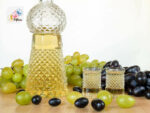
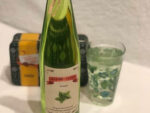

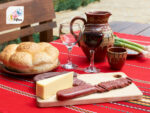

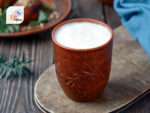
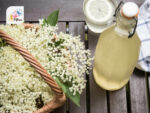


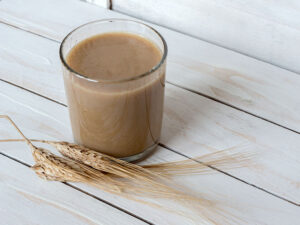
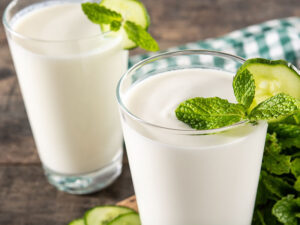
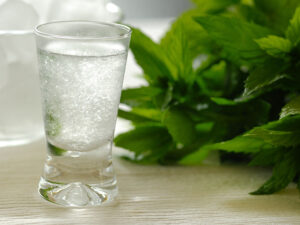
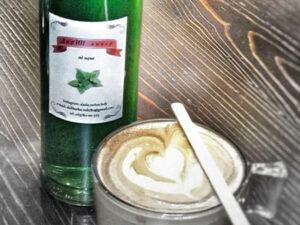

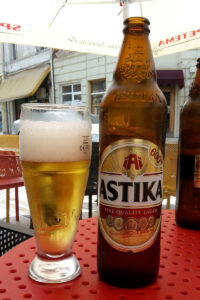

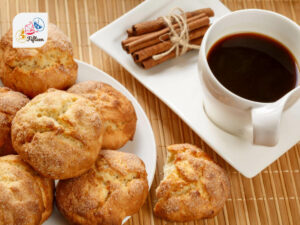
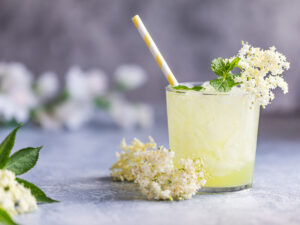
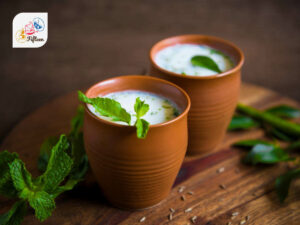
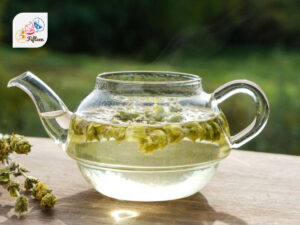


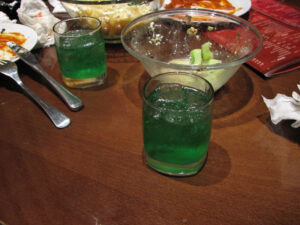
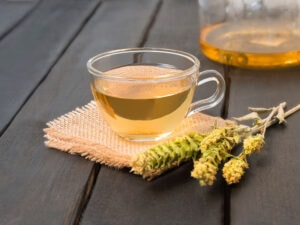
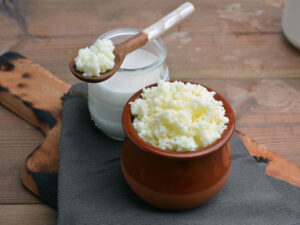
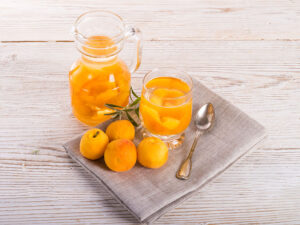
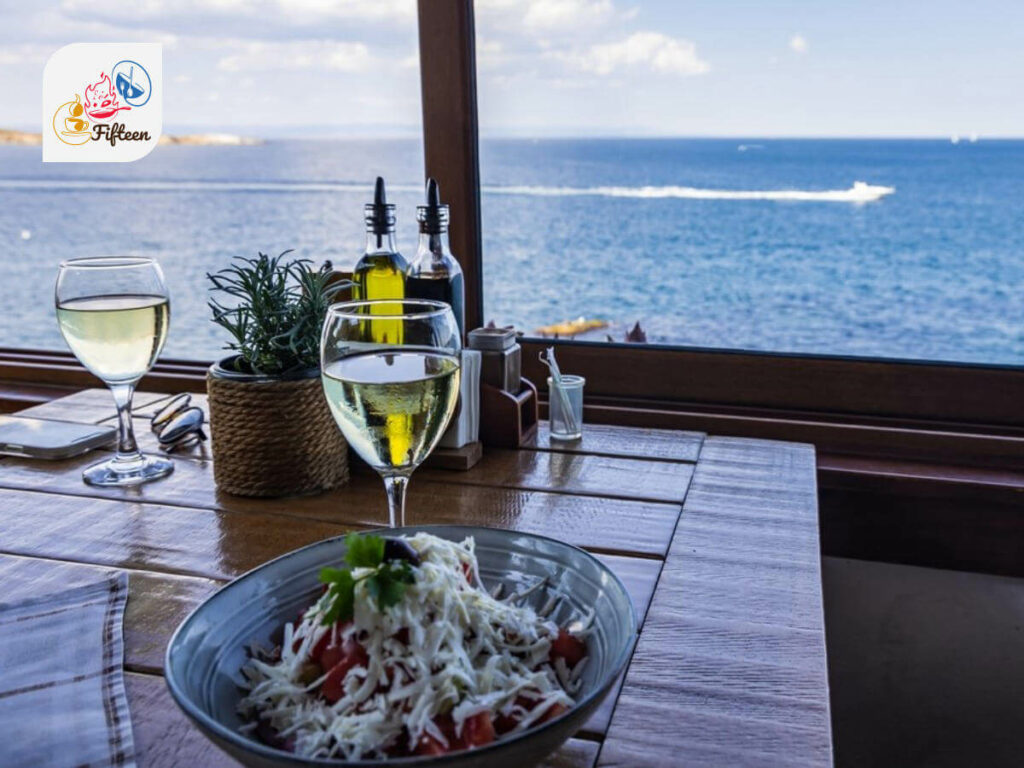
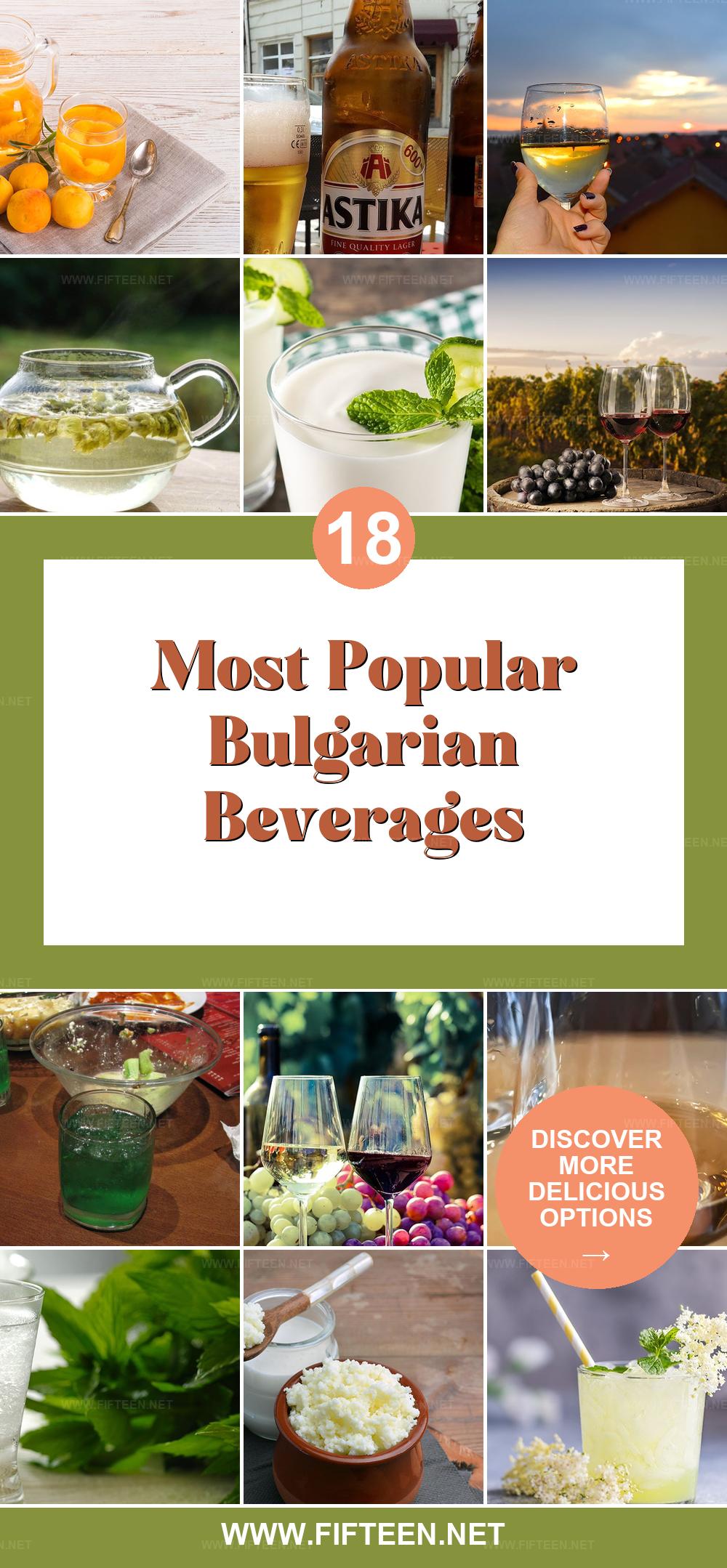
Mia Dimitrova
Content Writer
Expertise
Home Cooking, Meal Planning, Food Styling, Food Photography, Culinary Storytelling, Cooking-video Maker, European Food Content Creator, Bulgarian Food Evaluation Expert
Education
Sofia University “St. Kliment Ohridski”
Completed a thesis titled “Bulgaria on a Plate: A Photographic Journey through our Gastronomic Legacy.”
European Culinary Arts Academy
Maria Dimitrova, or Mia, is a Contributing Writer from Sofia, Bulgaria. Her work beautifully intertwines the rich flavors of Bulgarian and European dishes with their visual storytelling, capturing the soul of each cuisine. Through engaging content and stunning photography, Maria explores the intricate relationship between food’s aesthetic appeal and cultural history.
Specializing in home cooking, food styling, and photography, she brings European culinary traditions to life, offering a unique glimpse into Bulgaria’s gastronomic heritage. Maria’s expertise highlights her deep appreciation for culinary art and invites her audience to embark on a flavorful journey through Europe’s diverse food landscape.